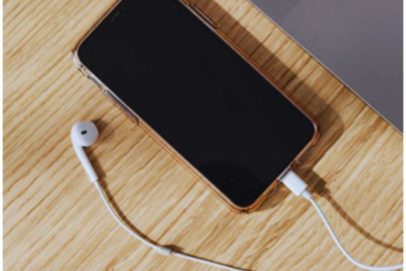These days, we’re all married to our smartphones. Having someone steal your smartphone would be like having someone steal one of your arms. Except your arm doesn’t contain all your emails, your social media accounts, your banking information, your shopping accounts, your personal notes to yourself, and so on.
You need to protect your smartphone with a password on the lock screen, and protect your accounts with strong and unique passwords for each of them. Make sure you install a mobile antivirus app, as well as running your updates and security patches as soon as they become available. Be wary of phishing scams, and avoid both public wifi networks and public chargers.
Password Protect It
Some smartphone users spend a lot of time worrying about what could happen if their phone gets infected with malware, and not enough time considering what could happen if their phone is physically stolen – or even just lost. Use the lock screen feature to password-protect your phone so that a would-be criminal will at least have one obstacle to overcome before gaining access to your data. It could give you the time to remotely wipe your phone and save your data from prying eyes.
Use Strong Passwords For All Your Accounts
Don’t be one of those people who uses the same password for every one of your accounts. Those people get hacked and when they do, they’re in a world of trouble because a hacker who gets their password for one account has their passwords for all accounts. Use a strong, complex, and unique password for each one of your online accounts. It should be at least 16 characters and contain numbers, letters, and special characters. A passphrase, rather than a password, is more secure. For example, “Il0v3P3rSianCats!” would be more secure than “Persian”.
Install an Antivirus for Mobile Devices
You should have an antivirus app installed on every one of your devices, including mobile devices. Install a mobile antivirus app from a reputable software company and perform regular scans. Malware tends to run in the background and be unobtrusive, so an antivirus app may be the only way you’ll ever know you have any.
Don’t Use Public Wifi or Public Chargers
The problem with public wifi networks is that they’re public – anyone who happens by can connect to them. That includes cybercriminals, who can use the public nature of the network to spy on users’ activity. This could compromise your login credentials for accounts you sign into as well as any data in the accounts. Avoid using public wifi, and if you do, don’t do any banking or shopping.
You should also avoid using public chargers, like those ones at the airport. Hackers have been known to install malware onto those public chargers so that when you plug them into your phone, bam, you’re infected. Carry your own charger and adapter instead.kkkkkkkkkk
Update Your Operating System
Installing operating system (OS) updates can really take you out of the flow of things. We get it. But it’s absolutely essential for your smartphone security that you install these updates as soon as they become available. Why? Because they should contain fixes for known security issues with your phone that the developers have recently discovered. If you want your phone to be as secure as possible, you should install these updates without delay.
Beware of Phishing Scams
Phishing scams occur via email, text, and voice call, and they’re one of the main ways hackers sneak malware onto mobile devices. Often, malware is attached to an email bearing an urgent message that compels you to download the malicious attachment. Sometimes, scammers send a text message with a link in it, and if you click the link, you’ll download malware.
You should be generally suspicious of any email you get from someone you don’t know, especially if it’s trying to create a sense of urgency or elicit an emotional reaction. Avoid downloading attachments from strange emails, and don’t click on any links anyone sends you either, unless you know them and were expecting it. If you weren’t expecting it, be careful – one of the things malware often does when it infects a device is send out texts or emails to everyone in the device’s contacts list, in an attempt to spread itself.
Malware poses a huge threat to smartphone users, and you really can’t be too careful. Make sure you’re practicing common-sense security protocols and using a reliable mobile antivirus program. Otherwise, your personal information is at risk.


